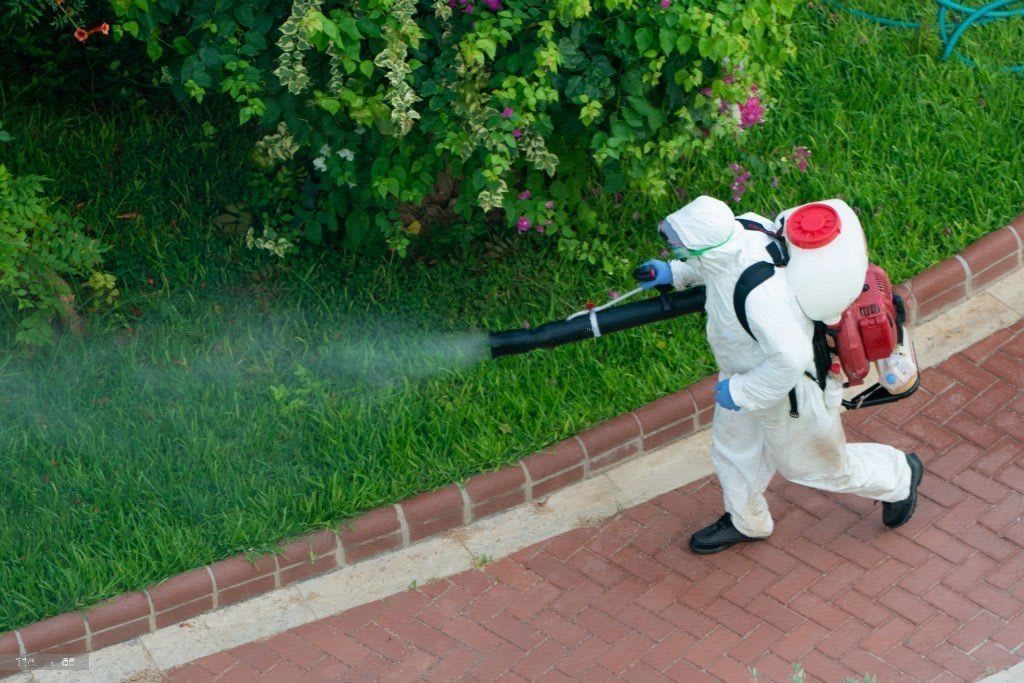
Welcome to our blog, where we're diving into the world of pest control and how you can make your home a greener, more eco-friendly space. We all know that pests can be a nuisance, but did you know that many common chemical pesticides used to combat them can have harmful effects on both our health and the environment? It's time for a change! In this article, we'll explore natural solutions for Alpha Pest Control that not only keep those pesky critters at bay but also promote a sustainable future. Get ready to embrace the power of nature as we uncover the benefits of eco-friendly pest control methods!
Common Chemical Pesticides and Their Harmful Effects
Chemical pesticides have long been used as a quick and effective solution to eliminate pests. However, the convenience comes at a cost. These pesticides contain toxic ingredients that can pose serious threats to our health and the environment.
Many common chemical pesticides contain synthetic compounds such as organophosphates, pyrethroids, and neonicotinoids. These chemicals are designed to kill insects by attacking their nervous systems or disrupting their reproductive cycles. Unfortunately, they do not discriminate between pests and beneficial organisms.
Exposure to chemical pesticides has been linked to various health issues in humans, including respiratory problems, skin irritations, neurological disorders, and even cancer. Additionally, these toxic substances can contaminate soil, water sources, and pollute the air we breathe.
Furthermore, chemical pesticides have detrimental effects on wildlife populations. Birds consume contaminated insects or seeds treated with pesticide residues which can lead to poisoning or reproductive harm. Bees are particularly vulnerable as exposure to certain pesticides weakens their immune systems and affects their navigation abilities.
It's crucial for us to recognize the harmful effects of these chemical solutions and explore safer alternatives for pest control. By switching to eco-friendly methods like natural repellents or home remedies derived from plants or essential oils—such as citronella oil for mosquitoes—we can protect ourselves without harming the environment.
In our next section (Home Remedies for Common Household Pests), we will discuss some simple yet effective natural solutions you can try at home!
Benefits of Switching to Natural Pest Control Methods
Switching to natural pest control methods offers numerous benefits for both your home and the environment. One of the biggest advantages is that natural solutions are safer for you, your family, and your pets. Unlike chemical pesticides, which can be toxic and harmful if ingested or inhaled, natural pest control methods use ingredients that are non-toxic and pose minimal risk.
Another benefit of using natural pest control is that it is more sustainable in the long run. Chemical pesticides can have negative effects on soil quality and water sources, potentially harming other plants, animals, and beneficial insects. Natural pest control methods work harmoniously with nature by targeting specific pests while leaving beneficial organisms unharmed.
Furthermore, using natural solutions can save you money in the long term. While chemical pesticides may provide quick results initially, they often require repeated applications due to pests developing resistance over time. On the other hand, many natural alternatives focus on prevention rather than eradication alone.
Natural pest control methods also promote biodiversity by preserving a balanced ecosystem within your home garden or yard. By avoiding harsh chemicals that disrupt this delicate balance, you encourage beneficial insects like ladybugs and bees to thrive alongside desirable plants.
Making the switch to eco-friendly options not only protects your immediate surroundings but contributes positively to global efforts towards sustainability as well. By reducing our reliance on harmful chemicals found in traditional pesticide products we actively participate in creating a greener future for generations to come
Essential Oils for Pest Control
Essential oils have gained popularity not only for their pleasant scents but also for their numerous health and wellness benefits. But did you know that certain essential oils can also be effective in repelling pests? That's right! These natural plant extracts can help keep unwanted critters at bay without the need for harsh chemical pesticides.
One popular essential oil for pest control is peppermint oil. Its strong scent acts as a deterrent to ants, spiders, and even mice. Simply dilute a few drops of peppermint oil with water and spray it around windowsills, doorways, and other entry points to create a barrier that pests won't want to cross.
Another powerful essential oil is tea tree oil. With its antifungal, antibacterial, and insecticidal properties, tea tree oil is known to repel insects like mosquitoes, flies, and fleas. Mix a few drops of tea tree oil with water or carrier oil (such as coconut or jojoba) and apply it onto your skin or clothing before heading outdoors.
Lemon eucalyptus oil is another excellent choice for keeping pesky mosquitoes away naturally. This particular essential oil contains compounds that act as effective mosquito repellents without the use of harmful chemicals found in many commercial bug sprays.
Lavender essential oil not only has a calming effect on humans but also on insects such as moths, flies, fleas, and mosquitoes. Its soothing fragrance helps deter these pests from entering your space while adding a lovely aroma to your home.
Citronella essential oil is well-known for its ability to repel mosquitoes effectively. Citronella candles are commonly used during outdoor gatherings due to their potent insect-repelling properties.
These are just some examples of the many essential oils that can be used for eco-friendly pest control solutions in your home or garden. By incorporating these natural remedies into your pest management routine instead of relying solely on chemical pesticides, you can create a safer and healthier environment for yourself, your family, and the
Home Remedies for Common Household Pests
Dealing with pests in your home can be a frustrating and unpleasant experience. But before reaching for chemical pesticides, why not try some natural remedies that are safe for both you and the environment? Here are a few simple and effective home remedies to help you get rid of common household pests.
1. Ants: Sprinkle cinnamon or coffee grounds around entry points to deter ants from entering your home. You can also create a mixture of equal parts vinegar and water and spray it directly on ant trails.
2. Cockroaches: Mix equal parts baking soda and sugar, then sprinkle this mixture in areas where cockroaches frequent. The sugar will attract them, while the baking soda will kill them when ingested.
3. Fruit flies: Place a small bowl filled with apple cider vinegar near their breeding areas – fruit bowls or garbage cans are often hotspots. The scent of vinegar will attract the flies, causing them to drown in the liquid.
4. Mosquitoes: Plant mosquito-repellent herbs like citronella, lavender, or lemongrass in your garden or use essential oils made from these plants as natural repellents inside your home.
5. Spiders: Fill a spray bottle with a solution of water and peppermint essential oil (10-15 drops per cup), then spray it along windowsills, doorways, and other spider-prone areas.
By using these simple yet effective home remedies, you can keep common household pests at bay without resorting to harmful chemicals. Not only will you be protecting yourself and your family from exposure to toxins but also contributing towards creating a greener living space!





Comments (1)
🥰